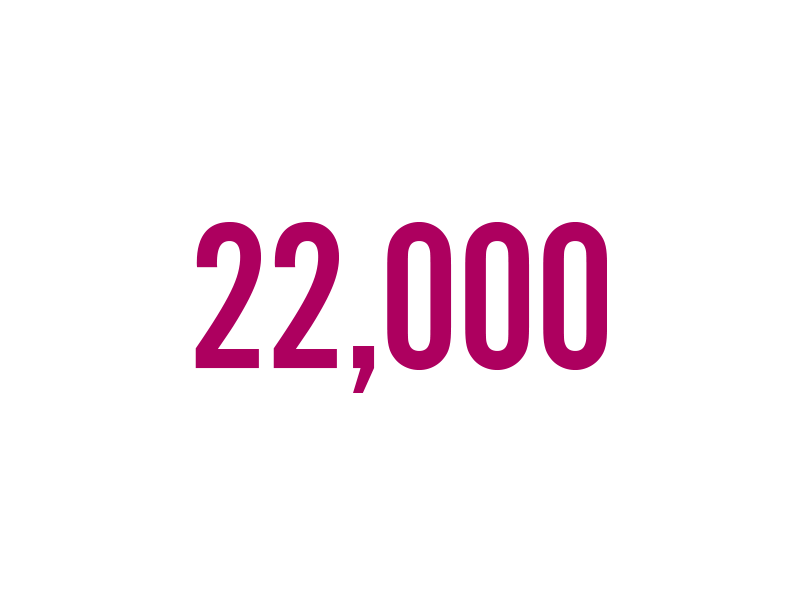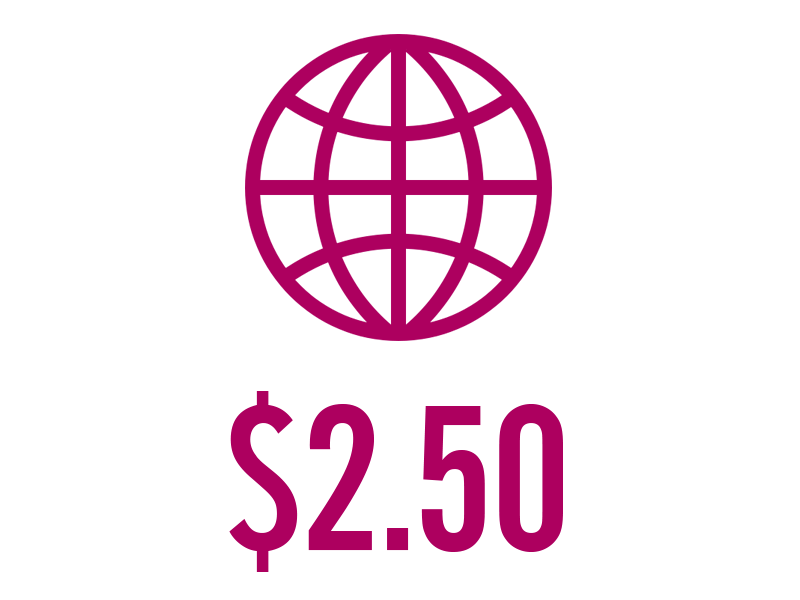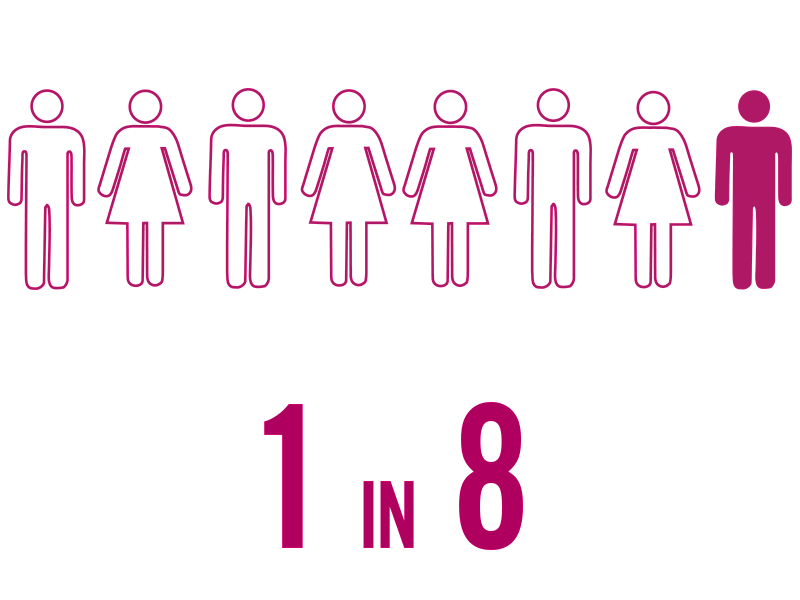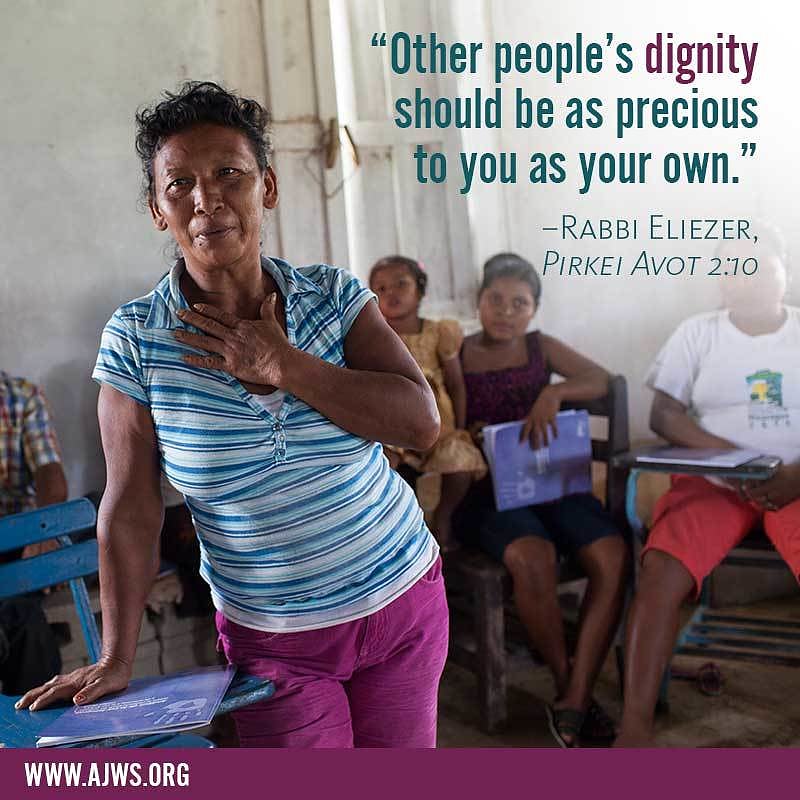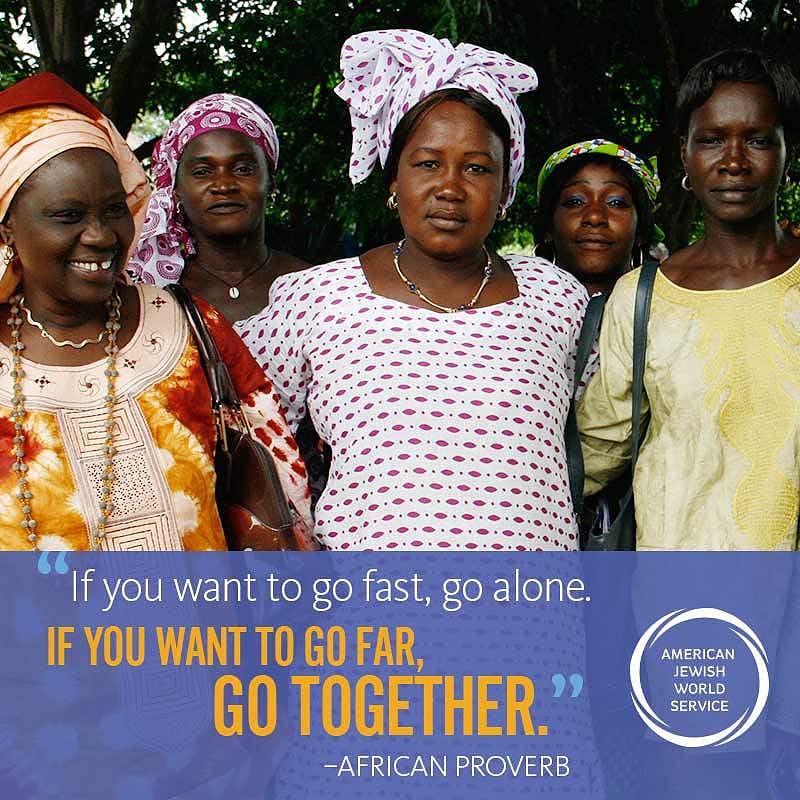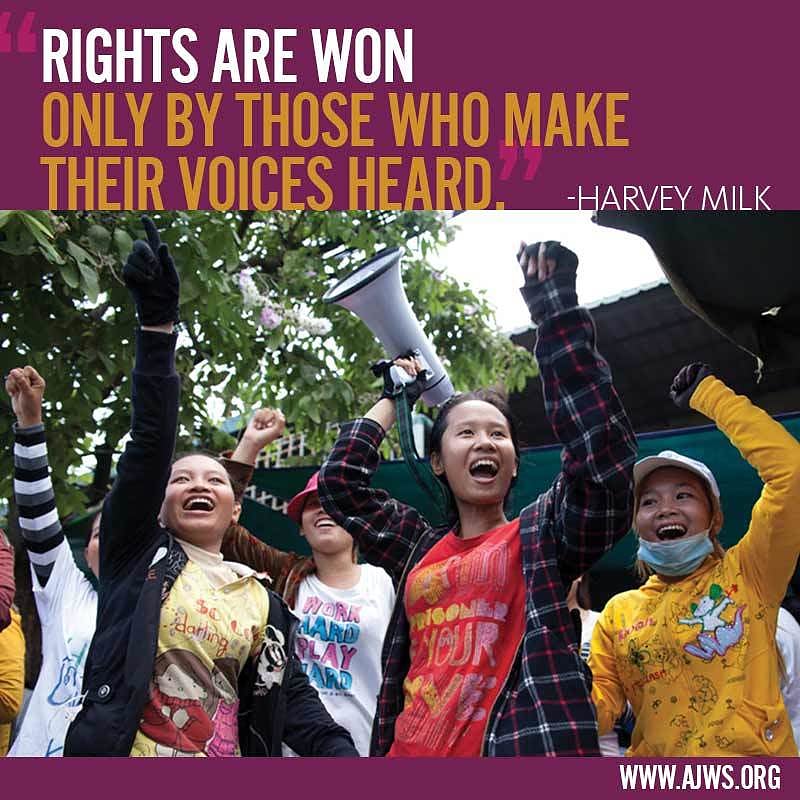AJWS’s Current U.S. Advocacy Priorities: Policy and Legislation
United States foreign policy affects countless people around the world—including millions in the countries where AJWS works. The AJWS Advocacy team elevates the voices of our partners, advocating to the U.S. government for U.S. foreign policy to promotes and strengthens human rights and combats oppression and injustice in our partners’ communities.
Today’s Top AJWS Advocacy Priorities
Ensure access to comprehensive sexual and reproductive health and rights for all people worldwide by:
- Ensuring that key reproductive sexual and reproductive health initiatives are well funded in the U.S. foreign assistance budget, including family planning and reproductive health, LGBTQI+ rights around the world, and PEPFAR (Presidential Emergency Plan for AIDS Relief).
- Passing a full legislative repeal of the draconian global gag rule—which prohibits any foreign organization receiving U.S. global health funding from providing legal and safe abortions or referrals for those services — through passage of the Global Health, Empowerment and Rights (Global HER) Act.
- Supporting the Abortion is Health Care Everywhere Act to repeal the harmful Helms Amendment, which limits the effectiveness of U.S. foreign assistance by blocking access to abortion services.
- Defending and supporting the rights of LGBTQI+ people across the globe by reintroducing and passing the Greater Leadership Overseas for the Benefit of Equality (GLOBE) Act.
- Standing up against persecution and abuse of LGBTQI+ people abroad by reintroducing and passing the Global Respect Act, which denies visas to those who commit human rights abuses against LGBTQI+ people.
Promote democracy, justice and accountability by:
- Supporting the civil and political rights of all people around the world to protest abusive governments, combat rising authoritarianism, their opinions freely, participate fully in the political process, and access information from governments without fear of reprisal or criminalization.
- Using all diplomatic and economic levers to uphold the rights of oppressed minorities, journalists, human rights defenders and other grassroots movements globally, especially movements led by young people, women and Indigenous people.
- Continuing and increasing the use of sanctions against those who commit corruption and human rights abuses around the world through the Global Magnitsky Human Rights Accountability Act, which enables the U.S. President to impose economic sanctions and deny human rights offenders entry to the U.S.
- Helping to elevate the voices of survivors of human rights abuses in the wake of conflict or mass atrocities in Asia, Africa, Latin America and the Caribbean by supporting credible domestic and international justice efforts—so that they may secure justice for the crimes committed against them.
- Increasing support and funding within the international affairs budget for atrocity prevention, humanitarian response and human rights-related accounts, particularly those that serve the most marginalized.
Strengthen U.S. foreign policy that puts human rights at its center by:
- Bolstering the resources available to U.S. government departments and agencies working to support human rights defenders and civil society globally to ensure that human rights principles and democratic norms are integrated fully across all U.S. foreign policy decision making, including in the 2023 Summit for Democracy.
- Supporting universal human rights instruments and international justice and accountability mechanisms, including through the International Criminal Court and International Court of Justice.
- Denouncing the use of narrow definitions of religious freedom that harm the rights of marginalized people while instead supporting inclusive language and policies that seek to protect those most at risk of human rights violations.
- Supporting robust funding for and bold leadership in multilateral organizations and agreements, in particular the United Nations Human Rights Council, the United Nations Framework Convention on Climate Change and the United Nations Population Fund (UNFPA).
- Take action with AJWS to build a better world. Click below to learn what you can do right now.

